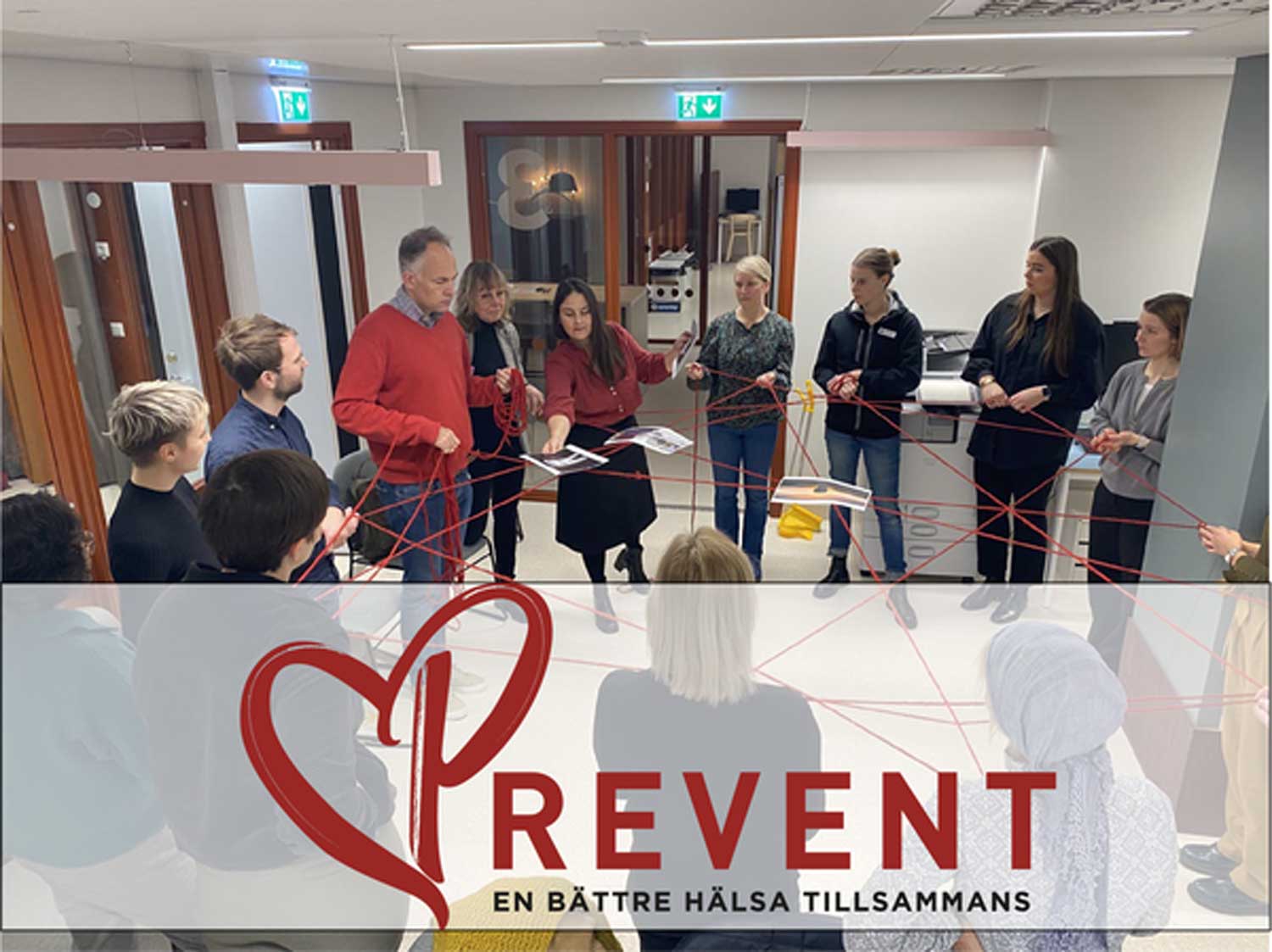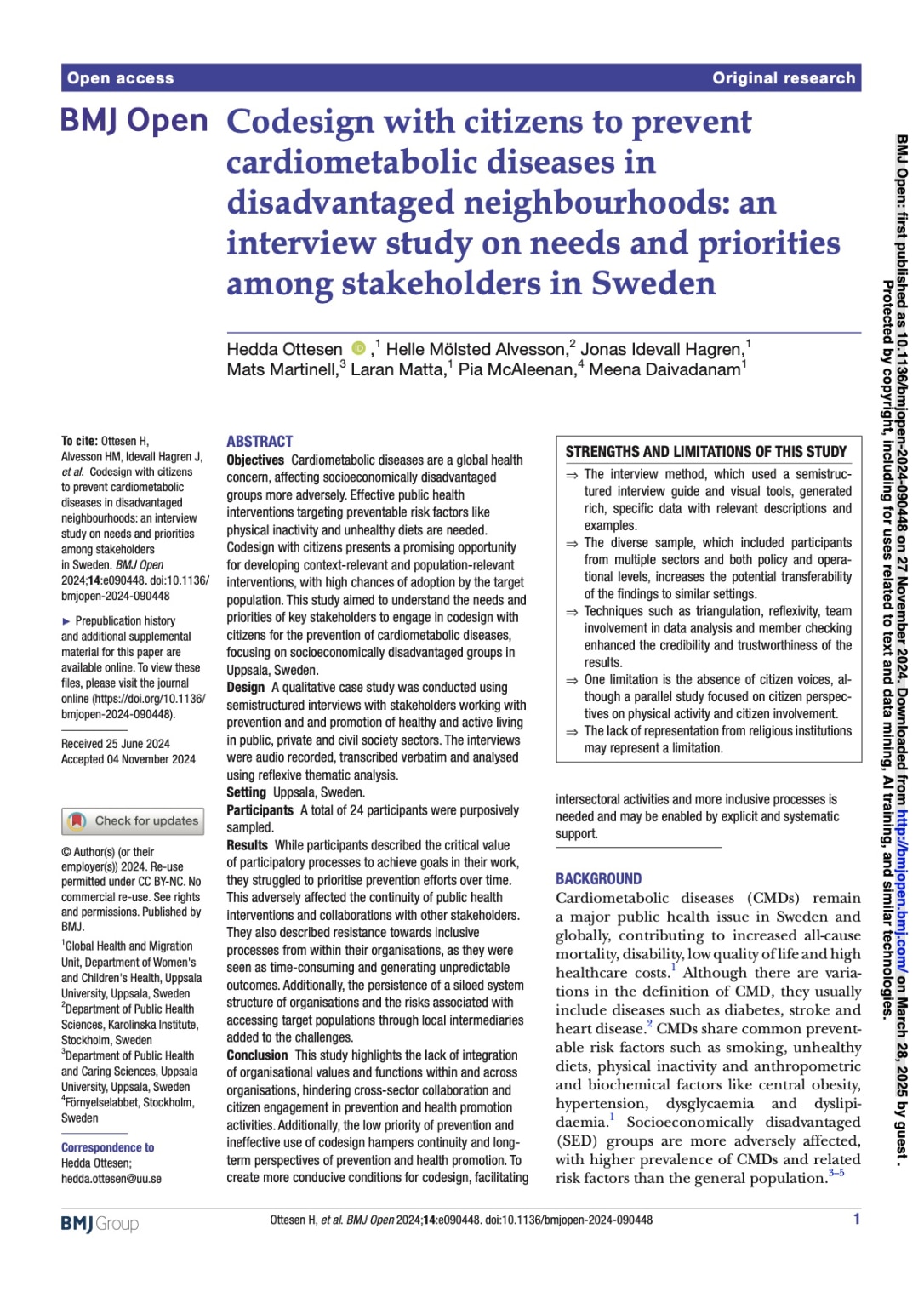Abstract
Objectives
Cardiometabolic diseases are a global health concern, affecting socioeconomically disadvantaged groups more adversely. Effective public health interventions targeting preventable risk factors like physical inactivity and unhealthy diets are needed. Codesign with citizens presents a promising opportunity for developing context-relevant and population-relevant interventions, with high chances of adoption by the target population. This study aimed to understand the needs and priorities of key stakeholders to engage in codesign with citizens for the prevention of cardiometabolic diseases, focusing on socioeconomically disadvantaged groups in Uppsala, Sweden.
Design
A qualitative case study was conducted using semistructured interviews with stakeholders working with prevention and and promotion of healthy and active living in public, private and civil society sectors. The interviews were audio recorded, transcribed verbatim and analysed using reflexive thematic analysis.
Setting Uppsala, Sweden.
Participants A total of 24 participants were purposively sampled.
Results
While participants described the critical of participatory processes to achieve goals in their work, they struggled to prioritise prevention efforts over time. This adversely affected the continuity of public health interventions and collaborations with other stakeholders. They also described resistance towards inclusive processes from within their organisations, as they were seen as time-consuming and generating unpredictable outcomes. Additionally, the persistence of a siloed system structure of organisations and the risks associated with accessing target populations through local intermediaries added to the challenges.
Conclusion
This study highlights the lack of integration of organisational values and functions within and across organisations, hindering cross-sector collaboration and citizen engagement in prevention and health promotion activities. Additionally, the low priority of prevention and ineffective use of codesign hampers continuity and long- term perspectives of prevention and health promotion. To create more conducive conditions for codesign, facilitating intersectoral activities and more inclusive processes is needed and may be enabled by explicit and systematic support.
Relaterade projekt
Författare
Hedda Ottesen, Helle Mölsted Alvesson, Jonas Idevall Hagren, Mats Martinell, Laran Matta, Pia McAleenan, Meena Daivadanam
Publicerad vid

Designing for systems transformation – Labbrapporter från Prevent projektet
Framtidslabb, Strategiskt DesignstödPrevent är ett forskningsprojekt som vi har varit involverade i. Här har vi genomfört workshops tillsammans med olika parter för att skapa engagemang och förnyelse kring preventiv hälsa. Här kan du läsa tankegångar och insikter.
